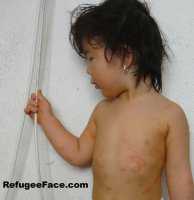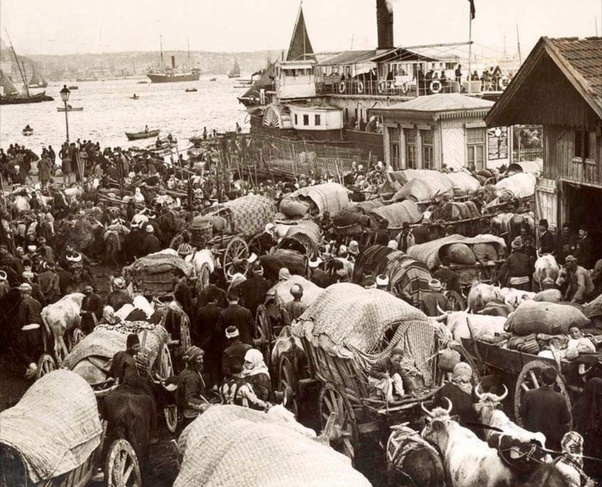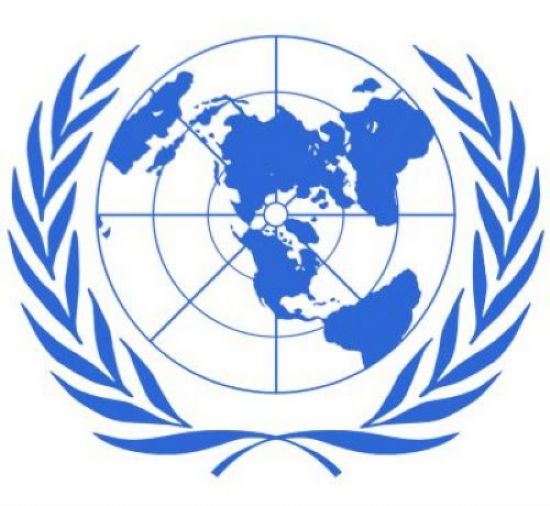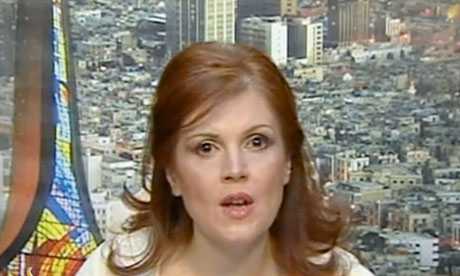Dear UNHCR Authorities,
 Afghans refugees are the third largest irregular refugee group in Turkey. Most have fled the war in Afghanistan. In 2010, refugees from Afghanistan numbered near 3,500 and made a sizable proportion of Turkey’s registered migrants. Most of them were spread out over satellite cities, with the following being the specific locations: Van, Ağrı, Kayseri, Gaziantep, Eskişehir, Çorum, Adana, Kahraman Maraş, Newşehir, Niğde, Sivas, Tokat, Istanbul, Ankara, Kutahya, Burdur, Konya, Karaman, Aksaray, Niğde and Hatay.
Afghans refugees are the third largest irregular refugee group in Turkey. Most have fled the war in Afghanistan. In 2010, refugees from Afghanistan numbered near 3,500 and made a sizable proportion of Turkey’s registered migrants. Most of them were spread out over satellite cities, with the following being the specific locations: Van, Ağrı, Kayseri, Gaziantep, Eskişehir, Çorum, Adana, Kahraman Maraş, Newşehir, Niğde, Sivas, Tokat, Istanbul, Ankara, Kutahya, Burdur, Konya, Karaman, Aksaray, Niğde and Hatay.
Over the years, the number of Afghans entering Turkey has greatly increased. As of January 2010, Afghans consisted one-sixth of the 26,000 remaining refugees and asylum seekers in Turkey. By the end 2011, with the increase of war and violence in Afghanistan, their numbers are expected to surge up to 10,000, making them the largest refugee group, surpassing all other groups.
Afghan refugees are victims of the Afghan government’s propaganda, which makes the UNHCR think that Afghanistan has become safe and its refugees need little assistance. This mindset from your organization toward Afghan refugees confirms what people say about the UNHCR – that it is an institution that doesn’t truly respect human rights. Because of this approach by the UNHCR, a large number of Afghan refugees have lost their lives as they have chosen to independently and illegalty smuggle themselves to EU member countries.
When it comes to Afghan refugees in Turkey, we believe that UNHCR chooses not to uphold the rights of these refugees, and refuses to comply with its own mandate. Refugee applications take far too long to process, and living conditions for refugees are untenable.
Day after day, week after week, month after month, and year after year, we live with lies and broken promises of change, and when change comes, it is for the worse and not for the better. Nothing improves despite all the negotiations.
Like you, we were fed the love of my country. Like you, we remember our past and present, and remember the rusty keys of my parents’ home, keys to doors that exist no more, but keys that have their doors in our hearts and our imaginations. These rusty keys are still with us. We remember that we were brought up with this eternal belief that right is right, and nothing can justify ignoring it.
But for our children, the situation is very bad. They feel excluded and discriminated against. They are ashamed because they live in refugee housing and therefore they do not bring their friends from school to their apartments. The children have no room and space for themselves. They have little possibilities to learn from school. They ask their parents for help with their school lessons, but their parents don’t know the new language. The futures of our children are being destroyed in the collective refugee buildings. They become adults earlier than other children, because they live among other refugees, most of whom are adults, under harsh conditions. Through the control of the janitors and their presence, they feel in their young life like they are in prison.
It is hard to imagine that in this century, families spend their nights hungry, and children spend their nights playing in the dim light of a candle because their families can’t afford to pay for electricity. It is even worse to imagine that in the peak of the world modernization, some groups of people are locked in a small place and denied the freedom of movement. It is hard to imagine that a mother gives birth to two babies here, and the firstborn child is going to be five, having waited all her life for a change in her status file that is yet to come. It is hard to imagine that the Afghan refugees live here without the right to work, and only getting some money for paying for food and rent.
We believe in human values and human rights and generosity. We believe in freedom, justice, peace, democracy and equality. We believe that people who fight for justice and against oppression are heroes, like you. We believe that you are a role model, and you will affect generations to come.
But we are also the witness of UNHCR staff sometimes working to the detriment of Afghan refugees. During the last night of 2010, many fıles of Afghan refugees learned that they had been accepted, and they ware happy with UNHCR for this kind of pleasant surprise. Unfortunatly, after two days, our smiles vanished as we learned that our files had been changed to Private Accept (Özel kabul in Turkish). This incident shows the quality of work the UNHCR staff in Ankara performs for Afghan refugees.
We are the witness of a letter sent it the same document to an Afghan refugee twice after three months. This also shows the quality of work your staff in Ankara performs for Afghan reffugees.
We do not accept such inattention and violations of the rights of Afghan refugees, and we, jointly with Afghan refugees all over of Turkey, therefore make the following demands:
• Until our primary demand is implemented, we ask that UNHCR take immediate steps to ensure that the status determination procedures are efficient, fair, and transparent, and that UNHCR and its affiliated organizations are accountable to asylum-seekers
• UNHCR must explain why the cases of Afghan refugees in Turkey take significantly longer to process compared to those of other refugees
• UNHCR must explain why the case of many Afghan refugees, which have been accepted already by UNHCR, are suspended within 1 to 2 years
• UNHCR must explain why the cases of many Afghan refugees are in the Specific Acceptance status or in Turkish (Özel Kabul). We demand to know why the UNHCR refuses to explain this to us. And, finally, what is the difference between the Normal Acceptance and Specific Acceptance? How many years must those in the Specific Acceptance status wait for the change? We are demanding that the UNHCR change Specific Acceptance to Normal Acceptance.
• If you want to work for Afghan refugees, you must employ Afghan translators who are familiar with the Afghan language and culture. Because there is a big difference between Farsi – which the translators speak – and Dari – which the Afghan refugees speak – we don’t understand the translators well, and they in turn cannot understand us and fail to accurately convey what we mean. Translators must be proficient in Dari and must understand Afghan culture to ensure that refugees’ accounts are recorded correctly and in full.
• Interviews must be made comfortable; asylum-seekers should not feel criminalized by interviewers.
• Full and clear reasons for rejection must be disclosed in a detailed format, directly to the refugee, immediately after a decision has been made.
• We demand that all rejected case files immediately be reopened and reviewed under the standards for UNHCR’s operation demanded here.
• UNHCR must ensure that collaborating agencies and NGOs mandated to assist asylum seekers and refugees, for example ASAM, are free from corrupt practices and treat refugees fairly and in accordance with their rights.
The current situation of Afghan refugees in Turkey, which has been ongoing for years, is not now nor has it ever been acceptable. Our Coordination Group will continue to campaign until human rights violations cease and our refugees are protected by the UNHCR according to its mandate.
The UNHCR is well aware that many Afghan refugees who have been registered with the UNHCR choose to go to the EU illegally. They wait for a long period of time hoping a change in their status, but that does not happen. You are also well aware that many Afghan refugee families from several cities left Turkey to enter the EU illegally because UNHCR invented a new law by creating the “specific acceptance situation,” or in Turkish, Özel kabul.
We are asking you: “What have you done to process our status?” This is why we continue to work to make a positive change and work for a better tomorrow at a time when every day that comes is worse than the day before for us.
We, the Afghan refugees, have been patient for a very long time, waiting for a change in our files. We have been silent since the UNHCR office inaugurated in Turkey and relied solely on you and your staff, but unfortunately, in the last few years, nothing has changed for us, instigating us to start the protest.
We don’t know if you will read these words or not, but we do hope that such words that come from our heart will reach yours, and you can find the hope and strength our people still have in them. Right is right, and justice is justice. All people are equal, and no race or color is superior above the others.
We urge you all to do something to save our kids and their future, and treat us as human beings who have the right to have a decent life.
We expect the UNHCR to immediately take measures to address these demands. The process of granting prima facie status to Afghan refugees must be fast-tracked. Anything less is unacceptable and will be met with continued public protests and action, including legal action, against the UNHCR.
We fear the day when our refugees, despondent about their prospects here, decide to go to the EU en masse. Thus, it is a need that your office takes urgent measures to solve these problems. We think it is time that your office rightly addresses this issue before it is too late. Otherwise, we will ask the international community to help Afghan refugees to change the political line of the UNHCR.
We will ask workers of the UN, the UNHCR and other workers of different institutions in different countries to show their support to Afghan refugees.
We hope to see some positive changes about the problems and concerns we have raised here. Thank you in advance for considering this open letter in a positive way; otherwise, we will be compelled to send it all of human rights organizations and the UNHCR headquarters.
In conclusion, we thank you for taking the time to hear our views and beliefs. We are eagerly awaiting your response, and hope dearly that no legal action will need to be taken.
Sincerely,
Coordination Group of Afghan Refugees in Turkey
Turkey




 The Turkish government declared that it will suspend its relations with the European Union if the Greek half of Cyprus takes the rotating presidency of the Council of the European Union scheduled in July 2012 without first solving the reunification issue between the Greek Cypriots and the Turkish Cypriots. Turkey’s Prime Minister Erdogan stated that Turkey does not recognize Cyprus as a nation.
The Turkish government declared that it will suspend its relations with the European Union if the Greek half of Cyprus takes the rotating presidency of the Council of the European Union scheduled in July 2012 without first solving the reunification issue between the Greek Cypriots and the Turkish Cypriots. Turkey’s Prime Minister Erdogan stated that Turkey does not recognize Cyprus as a nation.

